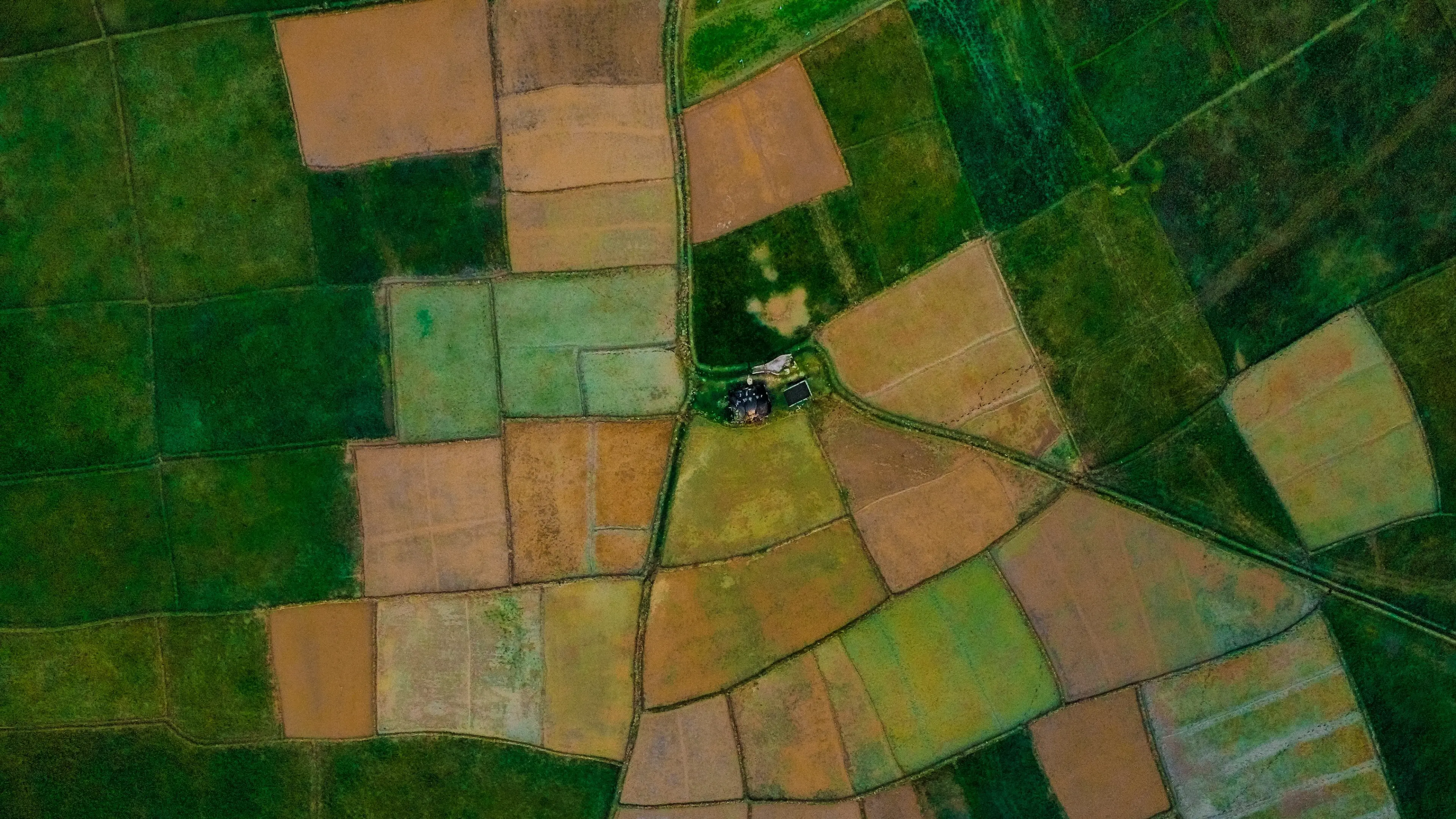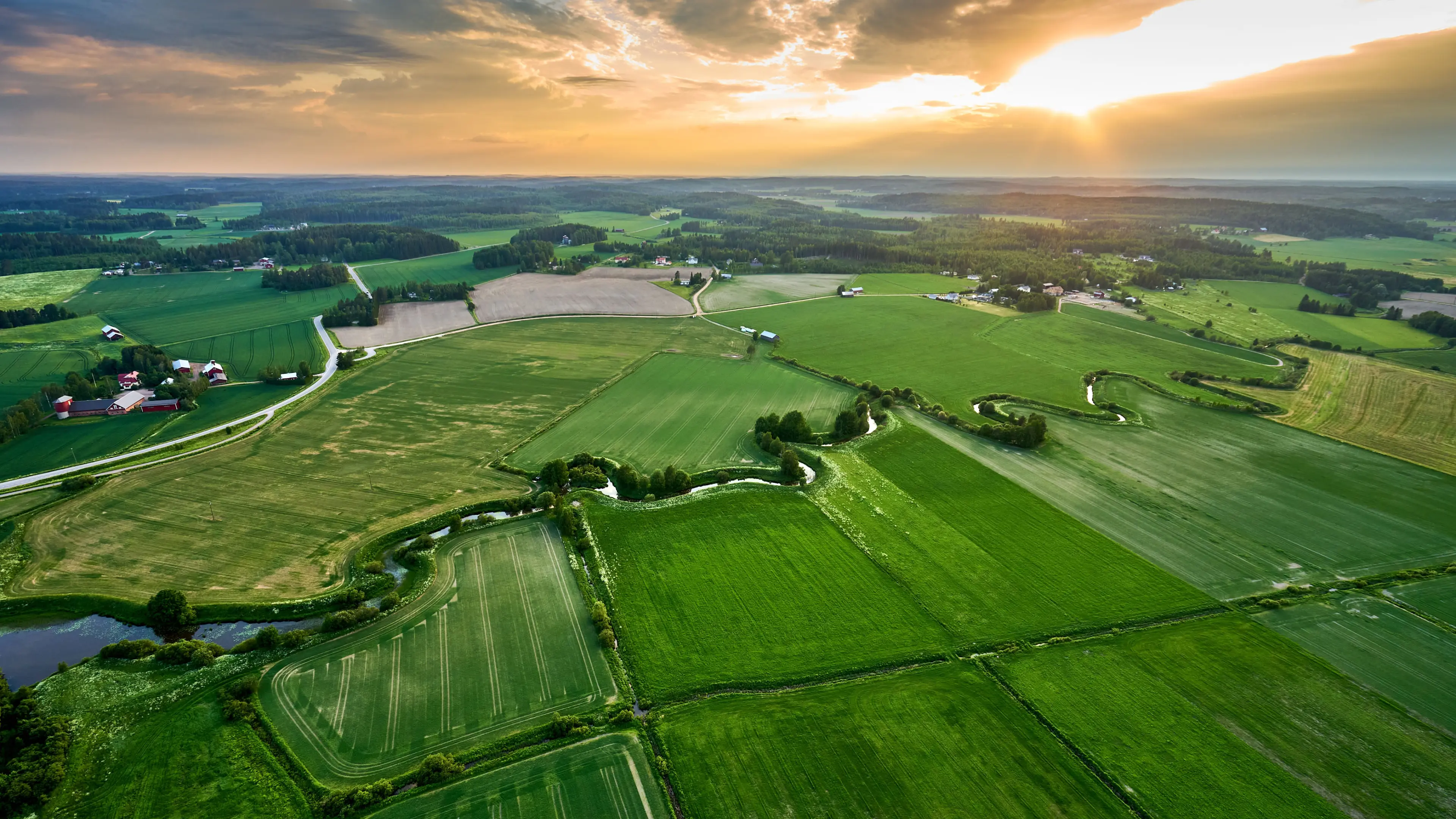This week, the United Nations Framework Convention on Climate Change is convening its annual Climate Conference in Bonn, Germany. In 2019, I had the privilege of attending the conference and presenting remarks on the role of soil carbon sequestration in helping to mitigate climate change as part of the Koronivia Joint Work on Agriculture (KJWA). As a scientist with expertise in biophysics and ag biotechnology, as well as an agricultural policy expert, I was asked to speak of the challenges of scaling regenerative agriculture as a means of improving soil health, and therefore, climate mitigation and adaptation.
Presenting at the UN Climate Conference was a career highlight for me. For seven brief minutes, a kid from small town Texas - the grandson of sharecropper farmers - was able to stand before the delegates of the world and advocate for policies to improve the sustainability and health of our planet.
However, looking back on my 2019 remarks, I am disappointed to acknowledge that the world has still not made sufficient progress in this space, given the urgency of the need. My comments focused on three areas, which I have summarized below, along with where we’re at today:
Key challenges or barriers in increasing investment in soil health
- Then: We cannot solve the challenges of climate change by remaining in silos. Our success will depend upon a collective effort.
- Now: Much of the work in advancing regenerative agriculture still remains very much in silos. We need broad partnerships across companies, governments, NGOs, and other organizations to rapidly transform the agricultural and food sectors to a more sustainable model. The USDA’s Climate Smart Commodities Program is a much-needed partnership with the potential to move the needle in the U.S., as are the investments in the Inflation Reduction Act to advance climate mitigation technologies. But we need more if we are to meet the Paris Agreement goals of 1.5 °C above pre-industrial levels.
- Then: Lack of incentives to growers for adopting climate smart practices. We must invest in lowering the financial barriers to create a bridge for farmers to change to more environmentally sustainable practices.
- Now: Implementation of regenerative ag practices is still quite costly to farmers. Over the last couple of years, there has been a proliferation of regenerative ag programs as ag and food companies look to meet corporate climate commitments and stand up new businesses. But often, the costs involved in setting up and running these programs are sufficiently high that many of the benefits do not accrue to the farmers. We must do more to remove costs of these programs including costs of measurement, verification, and certification of carbon removals. Additionally, farmers must receive a fair price for any carbon removals that they generate.
- Then: The current lack of uniform greenhouse gas guidance for dynamic, biological agriculture systems must be addressed. Current GHG guidance standards around permanence, land tenure, and other issues where agriculture provides unique challenges are insufficient. We must create standards and protocols that reward growers for improving soil health.
- Now: Carbon removals in the agricultural sector is still a relatively young sector and suffers from a cohesive guidance on methodologies, protocols, certification, and accounting schemes. The recent release of the Science Based Targets initiative Forest, Land, and Agriculture (FLAG) guidance is a much-needed step in the right direction. The Greenhouse Gas Protocol Land Sector Removals Guidance is also critical in guiding companies to create credible programs. But there are still too many voluntary market programs with differing rules and guidance that we risk confusion creating paralysis and inaction, or worse yet, greenwashing.
Last week, the FAO released a roadmap for the Koronivia Joint Work on Agriculture going forward based on the outcomes of COP27. I was pleased to see that the Sharm el-Sheikh Joint Work on implementation of climate action on agriculture will continue to build upon the work of the KJWA to put global agriculture on a path to greater sustainability and inclusivity of all farmers around the world. This initiative will take a holistic approach to the global food system with a particular focus on the inclusion of smallholder farmers, who produce one-third of the world’s food.
A few years ago at his retirement celebration, one of my former mentors was asked to provide some last words of wisdom to his colleagues. One thing in particular resonated with me: “Bring solutions that bring you. Without you, you’ve just brought a problem.”
In that spirit, how is Regrow helping to address the challenges that I raised in Bonn?
Partnerships. Regrow is working across the ag and food value chain, from input suppliers to commodity processors to food companies, to bring technology that scales regenerative ag programs across the globe. We are also actively engaged in partnerships with global standards bodies to help streamline the process from implementing practices on the ground to generating verified outcomes.
Driving the economics. To enable agriculture to reduce its GHG impact on the environment, the economics must be beneficial to the farmers who do the work. That’s why one of Regrow’s guiding principles has always been to create low-touch, low-cost platforms that enable scale while leaving much of the economic benefits to the farmers. Using the latest in remote-sensing technologies and more rigorous biogeochemical models allows us to quantify and verify environmental outcomes from regenerative ag practices in line with the latest guidance from Science Based Targets initiative and the Greenhouse Gas Protocol Land Sector Removals Guidance at a much lower cost than traditional methods of field visits and soil sampling methodologies.
Creating consistency in policy. Without the proper policy guidelines, even the best technology and sustainability initiatives will have difficulty in meeting the ambitious goals needed to avoid the worst impacts of climate change. That’s why Regrow is actively engaged across the policy space, from working with global standards bodies such as Verra, SustainCERT, and the Greenhouse Gas Protocol Technical Working Group, to engaging with Congress on matters such as the Farm Bill to bring harmonization across the policy space that will allow for rigorous, credible, and scalable climate solutions for a more sustainable food system.
Thinking back to my experience at the UN Climate Conference, there was a quote with an image of Beethoven in the exhibition hall that said, “Because playing together unites the world.”
In that moment, as I looked at all of the beautiful people gathered in that building, from every part of the world, that quote summed up for me why we were all there and what it will take for us to truly heal the planet from the impacts of climate change. Let’s double-down to do the work that needs to happen. For all of us.
.avif)


